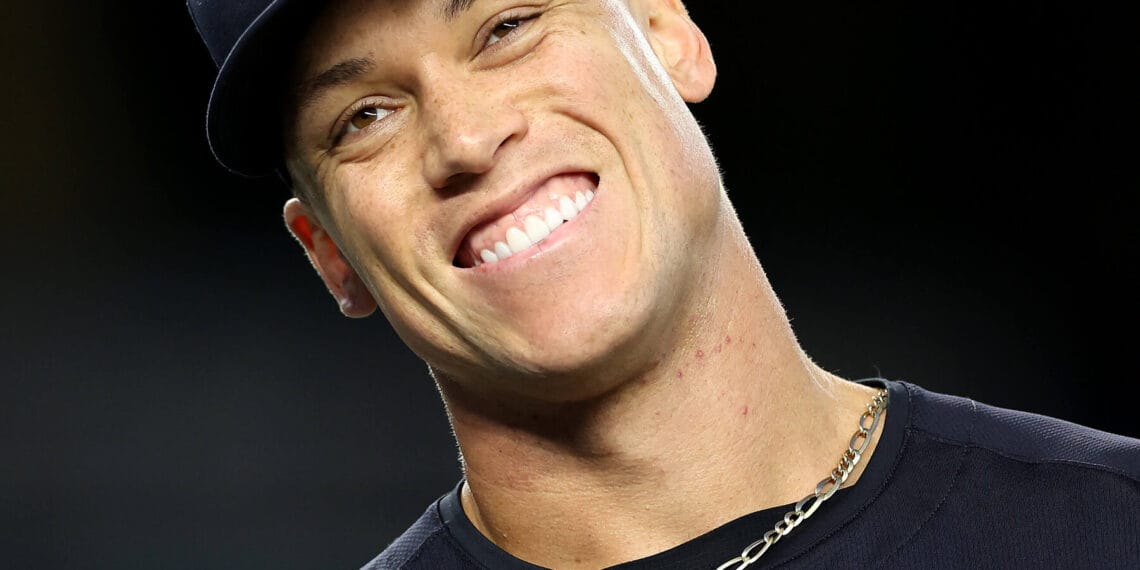The Gist
New York’s star baseball player is struggling against veteran pitcher Michael Wacha. In 18 times up at bat against Wacha, the star has managed only one hit. The situation is concerning for the team since Wacha has proven to be a difficult matchup. With 11 strikeouts, it shows that the star player has had a hard time dealing with Wacha’s pitching style.
This performance could impact the team’s strategy moving forwards. Given that baseball is a key sport in New York, fans and team officials may be worried about the star’s ability to hit against tough pitchers. This situation highlights the importance of adapting to different pitching styles in baseball. The team’s management might need to consider training adjustments for the player or strategise differently when facing Wacha in future games.
The Good
- Encouraging Adaptation: This situation can lead to improved training for the star player. If the player learns to adapt better, it may enhance performance against other tough pitchers.
- Team Strategy Development: The team’s management may create new strategies to overcome such challenges, benefiting the team as a whole.
- Fan Engagement: Such struggles can draw fans closer to the player, encouraging support and rallying around them during tough times.
- Highlighting Pitching Skills: Recognising Wacha’s skill encourages young players to learn from top-level pitching, enhancing the overall quality of the sport.
- Awareness and Analysis: The spotlight on the star’s struggles can drive deeper analysis of player performance, benefitting coaches and analysts in their training methods.
The Bad
- Mental Pressure: The star player may feel pressure to perform, which could affect confidence and future games. This mental stress can lead to a decrease in overall performance.
- Expectations from Fans: High expectations can lead to disappointment among fans, particularly if the player continues to struggle in critical games.
- Impact on Team Dynamics: If the star continues to struggle, it might create tension within the team, as other players may feel responsible for picking up the slack.
- Injury Risk: Overthinking the performance against Wacha could result in the player trying to force hits, which may lead to injuries.
- Analysis Paralysis: Too much focus on this confrontation may cause the player to over-analyse their swings, potentially complicating their natural game.
The Take
In the world of baseball, one player’s performance can significantly affect the game, and New York’s star is currently facing a challenging situation against veteran pitcher Michael Wacha. For the past few matches, this star player has been unable to secure a good hit, managing just one hit out of 18 at-bats against Wacha. This record is alarming, especially since 11 of those at-bats resulted in strikeouts. Such a statistic indicates not only a struggle against Wacha’s pitching but also raises questions about the player’s approach to facing difficult opponents.
This ongoing difficulty may require the star to adopt new strategies or techniques in hitting. Being successful in baseball is not just about having talent; it’s also about knowing how to respond to different challenges. After seeing repeated failure against Wacha, the coaching staff may decide to step in and provide tailored training. They could help the star adjust their swing or stance and help mentally prepare them to face Wacha again. This can help improve not just the individual player’s performance but also the team’s chances of winning when faced with tough pitchers in the future.
From a broader perspective, the situation has potential ripple effects throughout the team and among the fans. The star’s struggle may endear them further to the audience as they rally behind the player during this tough time. Fans often empathise with athletes who face challenges, leading to a more robust sense of community and support. This struggle can foster a stronger bond between the player and the fans, as they all share the hope of the star overcoming these pitching hurdles.
However, the situation is not free from negativity. The pressure to succeed can have detrimental effects on a player’s mental health, especially when they face high expectations. Mental pressure can lead to a decrease in confidence, which may further affect the player’s performance. Prolonged struggles could lead to frustration for both the player and teammates, as they may feel the need to compensate for a top player’s lack of production. In this light, the team’s chemistry may become compromised, making collaboration difficult during critical moments in games.
Another underlying issue is the risk of injuries that are related to overthinking performances. As the star player continues to face Wacha, the added stress of not succeeding can lead to pushing oneself too hard, which might result in physical injuries. In baseball, as in many sports, the risk of injury is often intertwined with a player’s mental and emotional state. Thus, this aspect has to be managed carefully to ensure the star can contribute to the team’s success without risking their health.
Ultimately, looking forward, the key for this star player will be to take the lessons from facing a tough opponent like Wacha and use them to grow stronger. Understanding weaknesses and working to improve them is a hallmark of great athletes. If the star can learn to approach these challenges with a new mindset, it may not only turn around their performance but also inspire other players who encounter similar tough situations. With the right support from coaches and encouragement from fans, this star may yet find a way out of their current slump and shine brighter on the baseball field.




































































